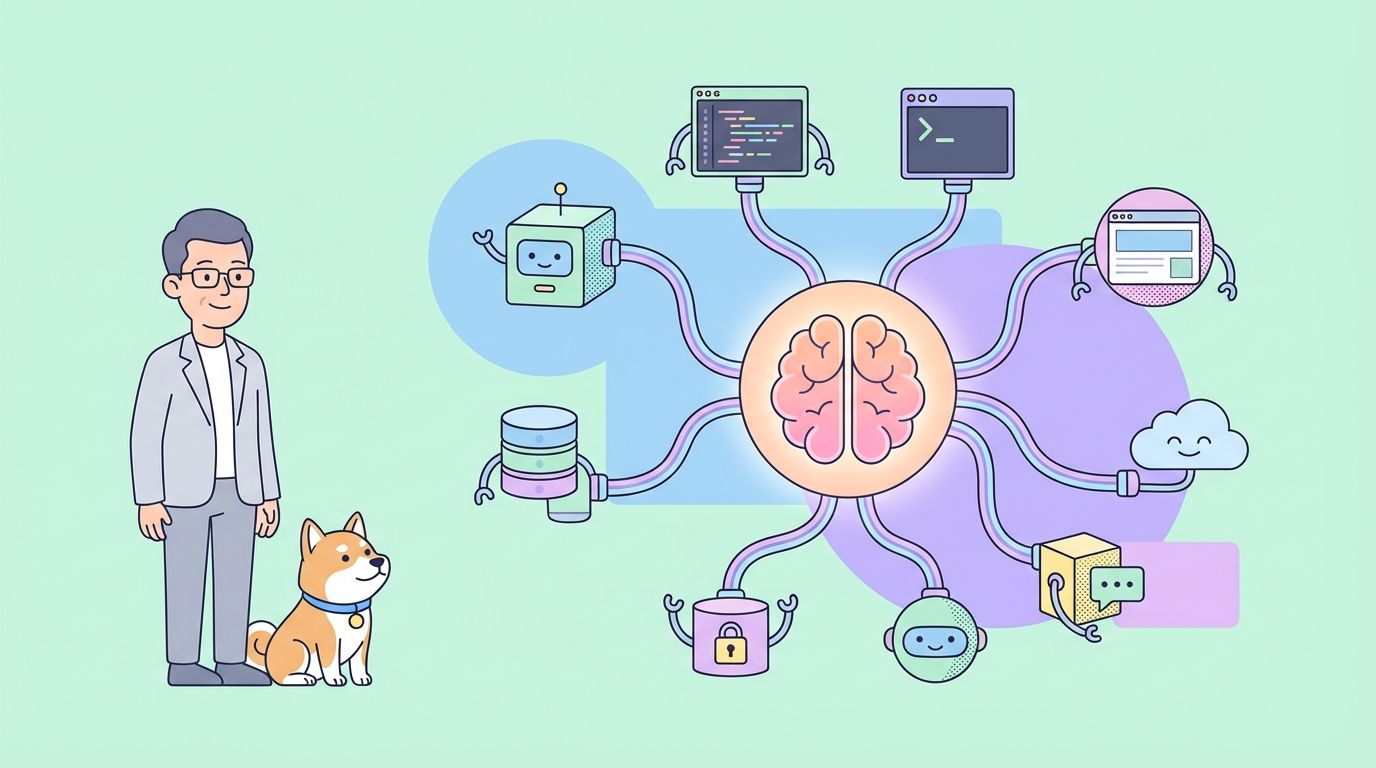
For large scale, industry-level API management, Kong Enterprise has long been a popular choice for many organizations.
So why you still need a viable Kong Alternative? For businesses seek more tailored solutions and innovative features, exploring alternatives becomes crucial.
This comprehensive guide delves into the top 10 Kong Enterprise alternatives for 2024, offering insights into their unique features, use cases, and potential benefits for your API management strategy.
Why Do You Need to Find Alternatives to Kong Enterprise? It's Complicated
While Kong Enterprise is a powerful API management platform, various factors may prompt organizations to explore alternative solutions:
- Feature Limitations: Some businesses may require specialized functionalities not central to Kong Enterprise's offerings, such as advanced real-time analytics or support for niche protocols.
- Cost: Kong Enterprise's pricing structure might not align with every organization's budget, especially for smaller companies or startups. Alternatives could offer more cost-effective solutions or flexible pricing models. Enterprises with highly specific needs might find Kong Enterprise's customization options limiting.
- Infrastructure Compatibility: Organizations heavily invested in specific cloud ecosystems or with unique on-premises requirements might seek solutions that integrate more seamlessly with their existing infrastructure.
- Ease of Implementation and Use: Teams new to API management or those seeking a simpler setup process might find Kong Enterprise's learning curve challenging. Alternatives with more intuitive interfaces or streamlined configurations could be appealing.
1. APIDog: The All-in-One API Development Platform (Best Kong Alternative)
Apidog stands out as a comprehensive solution for API development, testing, and documentation. As a powerful alternative to Kong Enterprise, Apidog offers a range of features that cater to the needs of modern API developers and testers.

Key Features of Apidog
- Unified API Lifecycle Management: Apidog provides a single platform for designing, developing, testing, and documenting APIs, streamlining the entire API lifecycle.
- Advanced API Testing Capabilities: Create complex test scenarios that mimic real-world use cases, with support for environment management and data-driven testing.
- AI-Powered API Development: Incorporate AI to assist in API design, suggesting best practices and identifying potential issues early in the development process.
- Version Control and Collaboration: Track changes to your APIs over time with built-in version control and collaborate seamlessly with team members in shared workspaces.
- Mock Servers: Set up mock servers quickly to simulate API responses, enabling front-end development to proceed in parallel with backend work.

- Performance Testing: Conduct load and stress tests to ensure your APIs can handle high traffic and identify performance bottlenecks.

- API Documentation: Automatically generate interactive API documentation, keeping your team and clients informed about the latest API changes.

2. MuleSoft: Enterprise-Grade API Management and Integration
MuleSoft's Anypoint Platform offers a comprehensive suite of tools for API design, implementation, and management, making it a robust alternative to Kong Enterprise, especially for enterprise-level organizations.

Key Features of MuleSoft
- API Designer: Visually design APIs using RAML or OAS specifications.
- Mule Runtime Engine: Build and deploy integration applications and APIs.
- API Manager: Manage API lifecycles, including versioning, access control, and analytics.
- Anypoint Exchange: Discover and share reusable assets, APIs, and connectors.

Use Cases
MuleSoft is particularly well-suited for:
- Large enterprises with complex integration needs
- Organizations looking to implement a comprehensive API strategy
- Businesses requiring strong governance and security features
3. Tyk: Open-Source API Management Platform
Tyk is an open-source API management platform that offers a comprehensive set of features for API lifecycle management, making it a strong alternative to Kong Enterprise.

Key Features of Tyk
- API Gateway: High-performance, non-blocking API Gateway.
- Developer Portal: Customizable portal for API documentation and developer onboarding.
- Access Management: Built-in identity and access management capabilities.
- API Designer: Visual tool for designing and documenting APIs.
4. Azure API Management: Cloud-Based API Management Solution
Microsoft's Azure API Management provides a comprehensive set of tools for publishing, securing, transforming, maintaining, and monitoring APIs, making it a strong contender among Kong Enterprise alternatives.

Key Features of Azure API Management
- API Gateway: Secure and scalable gateway for managing API traffic.
- Developer Portal: Customizable portal for API documentation and developer onboarding.
- Policy Engine: Powerful policy system for transforming and securing APIs.
- Analytics: Built-in analytics for monitoring API usage and performance.
Use Cases
Azure API Management is ideal for:
- Organizations already invested in the Microsoft Azure ecosystem
- Businesses looking for a fully managed, cloud-based API management solution
- Companies requiring strong integration with other cloud services
Certainly. I'll incorporate these four alternatives into the full article, replacing the ones you mentioned, and include code examples for each. Here's the updated section of the article:
5. WSO2 API Manager: Open-Source API Management Solution
WSO2 API Manager is an open-source API management platform that offers a comprehensive set of features for the complete API lifecycle.

Key Features of WSO2 API Manager
- API Gateway: High-performance gateway with caching, throttling, and security features.
- API Publisher: Tool for API providers to design, publish, and manage APIs.
- Developer Portal: Self-service portal for API consumers to discover and subscribe to APIs.
- API Analytics: Built-in analytics to monitor API usage and performance.

6. Gloo Edge: Cloud-Native API Gateway
Gloo Edge is a Kubernetes-native API gateway built on top of Envoy. It's designed for microservices, monoliths, and serverless architectures, offering advanced traffic control and security features.

Key Features of Gloo Edge
- Kubernetes-native Architecture: Seamlessly integrate with Kubernetes environments.
- Advanced Routing: Sophisticated traffic management capabilities.
- Built-in Security: Robust security features out of the box.
- Extensible Plugin System: Easily extend functionality with custom plugins.
- Multi-protocol Support: Handle HTTP, gRPC, and WebSocket traffic.
7. Akamai API Gateway: Edge-Based API Management
Akamai's API Gateway leverages their global edge network to provide API management capabilities with a focus on security and performance at the edge.

Key Features of Akamai API Gateway
- Global Edge Network: Leverage Akamai's worldwide infrastructure for improved performance.
- Advanced Security: Robust protection against API-specific threats.
- Traffic Management: Sophisticated throttling and quota management.
- API Monetization: Built-in features for API monetization and billing.
- Comprehensive Analytics: Detailed insights into API usage and performance.
8. Axway API Management: Hybrid API Management Solution
Axway offers a comprehensive API management platform with strong support for hybrid and multi-cloud environments, including features like API catalog, monetization, and analytics.

Key Features of Axway API Management
- Hybrid Deployment: Support for on-premises, cloud, and hybrid setups.
- API Catalog: Centralized repository for API discovery and documentation.
- Advanced Governance: Robust security and policy enforcement.
- Monetization Features: Tools for API productization and revenue generation.
- Comprehensive Analytics: Detailed reporting on API usage and performance.

9. Postman: Collaborative API Development Platform
While primarily known for API testing, Postman has evolved into a comprehensive API development platform, offering features that make it a viable alternative to Kong Enterprise for many teams.

Key Features of Postman
- API Client: Easily send requests and analyze responses for API testing and debugging.
- Automated Testing: Create and run automated test suites for your APIs.

- Team Collaboration: Share collections, environments, and test results with team members.
- API Documentation: Generate and publish interactive API documentation.
- Mock Servers: Create mock servers to simulate API responses for frontend development.

Use Cases
Postman is ideal for:
- Development teams looking for an all-in-one solution for API development and testing
- Organizations that prioritize collaboration in their API development process
- Teams that need to quickly prototype and iterate on API designs
10. IBM API Connect: Enterprise API Management Solution
IBM API Connect is a comprehensive API management platform that offers robust features for designing, securing, and managing APIs at scale.

Key Features of IBM API Connect
- API Gateway: Secure and scalable gateway for managing API traffic.
- Developer Portal: Customizable portal for API documentation and developer onboarding.
- API Analytics: Detailed analytics and reporting on API usage and performance.
- API Lifecycle Management: Tools for managing the entire API lifecycle from design to retirement.

Use Cases
IBM API Connect is particularly suitable for:
- Large enterprises with complex API management needs
- Organizations requiring strong security and governance features
- Businesses already using other IBM cloud services
Conclusion
As we've explored in this comprehensive guide, there are numerous powerful alternatives to Kong Enterprise available in 2024. From the versatile Apidog to specialized tools like IBM API Connect for enterprise-level organizations, each option offers unique features and capabilities to suit different API management needs.



